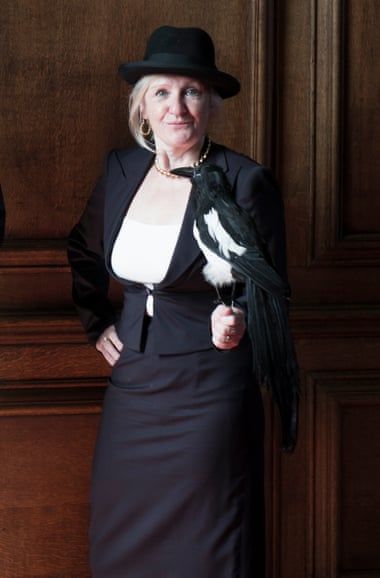
Loss of EU funding clips wings of vital crow study in Cambridge
One of Britain’s most important, and unusual, centres for studying cognition is facing imminent closure as a result of Brexit. Set up 22 years ago to study the minds of crows, rooks and other birds noted for their intelligence, the Cambridge Comparative Cognition Laboratory is set to cease operations in July.
Its director, Professor Nicola Clayton, told the Observer she was devastated by the prospect of ending her research there. Nor was she in any doubt about the prime reason for the centre’s closure.
“The problem lies with Britain leaving the EU,” Clayton said. “Our prime funding was provided by a grant from the European Research Council. However, after the UK voted for Brexit, that meant an end to our support.
“As a result, we face closure in the very near future. It’s horrendous.”
The Comparative Cognition Laboratory is based at the village of Madingley, near Cambridge, and is currently home to a total of seven rooks and 25 jays. Both species are members of the crow – or corvidae – family, which is noted for its keen intelligence. These Einsteins of the avian world can make tools, a skill that was previously thought to be possessed only by humans and a few other mammals, and can display signs of understanding the minds of other birds.
 Prof Nicola Clayton.
Prof Nicola Clayton.
“Corvids are as intelligent as chimpanzees,” said Clayton. “They plan for the future and create stashes of food. More importantly, they also try to find other corvids’ stashes and that is a very good model for a theory of mind. If you’re going to steal the stashes of other birds, you have to be able to put yourself in their minds and try to understand what they are thinking and where they might have put their food. You’re recognising that another entity has a mind like your own and that is very advanced.”
Other research has shown that corvids have strong memories of past events and that they use these to plan for the future. And, in another experiment at the laboratory, Clayton presented crows with pebbles and a pitcher containing water that was too low for them to reach. Unfazed, the birds grasped the pebbles in their beaks and dropped them into the pitcher so that the level of the water rose and they could drink it.
These insights into avian brainpower have been mirrored in other experiments on other species – such as parrots and octopuses – that have revealed startling intelligence in some unexpected animals. “We are just beginning to understand how these animals think, which makes the threat to our laboratory all the more heartbreaking,” added Clayton. “That is why I am desperate to find any last-minute funding that would save this ‘corvid palace’. These birds have shared their innermost secrets with us, after all.”
The prospect of closure facing the Cambridge laboratory adds to growing fears among senior researchers about a Brexit backlash that is now hitting British science. EU officials have been infuriated by the UK’s attitude to the Northern Ireland protocol and this has led to other major scientific projects being blocked in the UK.
This month it was revealed that Cambridge astronomer Nicholas Walton had been forced to pass on his leadership role of a €2.8m star mapping project to a colleague in the Netherlands because the UK’s membership of the flagship European €95bn Horizon research programme has not been ratified. He had been approved for a Horizon grant but must now take a passenger seat in his own project.
Similarly Carsten Welsch, a physicist at Liverpool University who won €2.6m in Horizon funding for longterm plasma research, faces the dilemma of having to move to the EU or handing over leadership to an EU institution. “This is really heartbreaking, given the long and extremely successful track record in scientific collaboration between the UK and EU,” he said.
These problems are bound to have a substantial impact on the UK, added Njy Rios, a director of Ayming UK, an international innovation consultancy. “We are already starting to see senior scientists who have partnerships in other European countries moving – or considering moves – to Europe because they want access to Horizon projects. This raises a real worry of serious knowledge drain occurring.”










